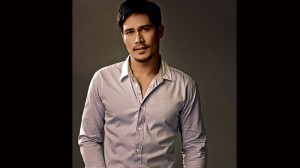On the local performing scene, stars are deemed to be such wonderful and endlessly fascinating people that many of them create and sustain long-running careers principally by just playing mere variations on their own selves.
Instead of creatively transforming themselves to suit the different roles assigned to them and to create a varied gallery of characters, they lazily opt to make only minor changes in terms of appearance, voice, gesture, way of walking and demeanor.
After all, they smilingly explain, the viewing public loves them for and as themselves, so why disappoint or distract them? Because, we hasten to point out, that’s what acting is really all about—the creation of new characters different from the star’s own persona!
The issue is highlighted even more when the actor is assigned to play a real person, like Jose Rizal or Ninoy Aquino. Most such portrayals suit the role to the actor, instead of the other way around, as the case should be.
In Rizal’s case, he’s even been played by an out-and-out mestizo, like Albert Martinez. The Pride of the Malayan race, portrayed by a tisoy?
This defocuses and even distorts some of the contentious elements relevant to the historical figure’s ethos, like the discrimination and oppression he suffered at the
hands of the Spaniards.
In Aquino’s case, considerable defocusing and confusion were palpable in a TV production’s choice of Piolo Pascual to play the senator. Piolo doesn’t at all look like Ninoy, his “signature” mole was a distraction, and his laid-back persona was very different from Aquino’s hyper and hectic speech and body tempo. And yet, Piolo was (mis)cast to play him, because he was popular and “a good
actor.”
Begging everyone’s pardon, but if an actor doesn’t physically and psychologically personify and vivify the well-known, real-life character he’s playing, that isn’t “good acting.”
Incisive portraits
Take a look at the more accurate and insightful portraits turned in by other, more creative and hardworking thespians. In “My Left Foot,” Daniel Day-Lewis distorted his body and voice to make himself believable as a person afflicted with cerebral palsy, at great physical torment to himself. Will Smith spent months training as a boxer and did his darned best to look like boxing champ Muhammad Ali.
Decades ago, other spot-on screen characterizations and transformations included Jose Ferrer as the vertically disadvantaged French painter Toulouse-Lautrec, Kirk Douglas as Vincent van Gogh, Peter O’Toole as Lawrence of Arabia.
More recently, Meryl Streep has astounded viewers with her many accurate and incisive screen portraits of famous people—Julia Child, Margaret Thatcher, etc.—as well as wildly fanciful types like the earth mother in “Mamma Mia” and the boss from hell in “The Devil Wears Prada.”
The actress and her enlightened fans don’t care how she looks “as herself,” because the challenge and triumph of her creative efforts for the cinema are much more glorious to behold, and savor
